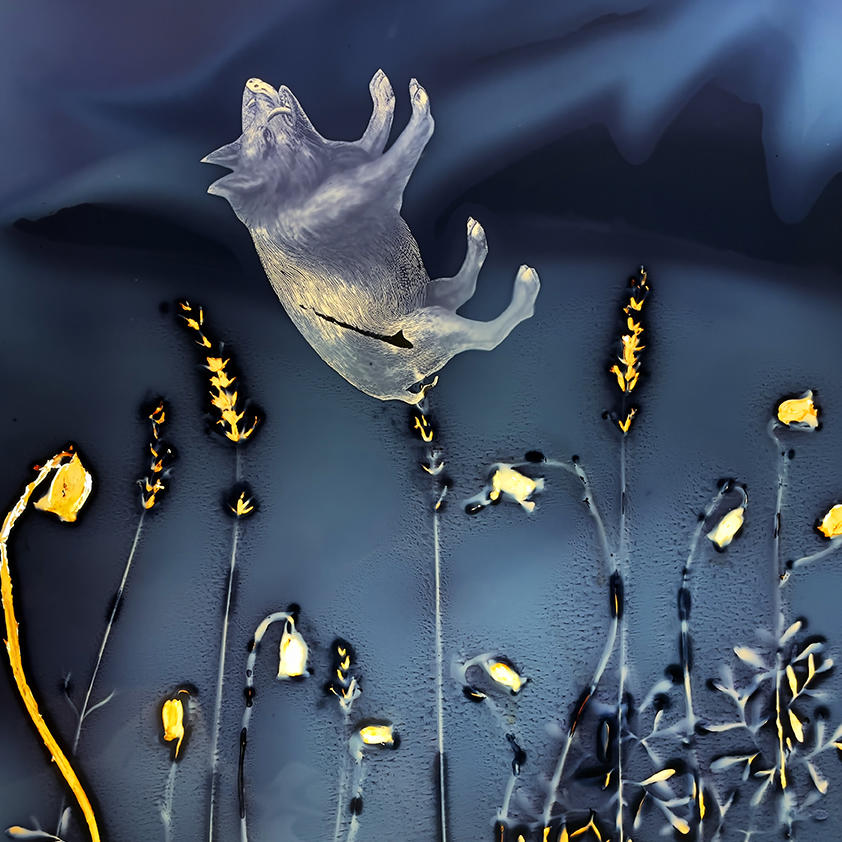Semester:
Offered:
Dates: May 28 - August 6 (11 classes)
Day/Time: Tuesdays, 6:30 – 8:30 pm via Zoom
Level: Beginner - Advanced
Instructor: Anne Eder
Course Description: Get outdoors with this introduction to plant-based printing processes that use light and common plant materials obtained from the backyard, a nearby park, or even the grocery! This class introduces plant-based printing processes that use light and common plant materials! It will cover anthotypes, chlorophyll printing, and other plant-based printing methods. We will meet via an online platform once a week for demonstrations, and students will then take what they have learned and
complete that week’s assignment, returning for troubleshooting, critique, and a new demo each week. Most items needed for this course should be easily obtainable from the backyard, a nearby park, or even the grocery.
With your registration, you will receive access to a Harvard Google Classroom, which will provide a place for sharing ideas, discussion, and handouts and feature recordings of each class. If you miss a class or would like to review, these recordings will be available for 30 days after the end of the course.
Suggested Materials:
- Substrates—any good watercolor paper will usually work well, but consider fabric, nonglossy ceramic, wood, or other surfaces.
- A means of extracting juice from plants—juicer, blender, mortar and pestle—any of these will work.
- Denatured alcohol (Everclear or vodka will work!).
- Salt.
- Cheesecloth or fine sieve.
- Foam or regular brushes for applying emulsion. Small trays for dipping optional.
- A contact frame or some pieces of glass (tape the edges for safety, rigid cardboard or equivalent for backing, clamps or clips, tape, or old glass photo frame (no UV glass—we want those UV rays!)
- Assorted blossoms, petals, leaves, roots, veggies, etc. for juicing.
- Transparency sheets. These can be drawn on or run through a printer. If you cannot get transparencies, objects may be used such as leaves or flowers or other material that can be flattened for contact with the paper, or you can make a waxed paper transparency (we will discuss this in class).
- If you have them, small water vials are helpful.
- Black and white photo paper, any size any finish, short date or expired is okay, as well as fresh of course. Film, either sheet or roll, any size. Expired is fine.
- For making chemistry: vitamin C (ascorbic acid), washing soda (soda ash or sodium carbonate). Instant coffee.
- For the second half of classes, a cyanotype kit is a good addition, as are some optional chemicals that will be discussed and may be bought later.
- For the second half of classes, a cyanotype kit is a good addition, as are some optional chemicals that will be discussed and may be bought later.
Here is the list of available tools and materials at the Ceramics Program. You may also consider ordering from a local supplier (Sheffield Pottery, Amherst Pottery Supply or Portland Pottery) for ceramic underglazes, chemicals and colorants. If you have questions, please email Ji-Eun Kim directly at jikim@fas.harvard.edu.
Course Fees: Your course fee covers instruction only. Local students may drop-off and pick-up class projects for firing at the cost of $0.06 per cubic inch. This can only be arranged by your instructor. Bisque fired cone 6 porcelain tiles will be available through the studio at a cost of $3.00 per tile plus shipping and handling if applicable. If you are interested in purchasing tiles for use in this class, please email Ji-Eun Kim, Administrative Coordinator, directly at jikim@fas.harvard.edu.
$25 for Harvard College Undergraduate Students, $484 for Harvard Graduate Students, $484 for Adult Community and Harvard Employee TAP Regular and Long Service.
- Adult Community: 18+, General Public; Harvard alumni, fellows, Extension School students, and faculty/staff who are not TAP-eligible; students from universities other than Harvard
- Harvard Employees eligible for the Tuition Assistance Program (TAP): TAP regular (employees worked less than 15 years) and TAP long service (employees who worked 15 or more years at Harvard)
- Harvard College Undergraduate Students: Currently enrolled students at Harvard College. This does not include Harvard Extension School Undergraduate Students. You must register with your Harvard email – we can arrange for an alternative email to be used for class after registration is complete.
- Harvard Graduate Students: Currently enrolled students in a Harvard University Graduate Program. This does not include Harvard Extension School Graduate Students or Harvard University Doctoral Candidates.
All registered students will receive a confirmation with class syllabus, link to the Zoom meeting and a link to the Google Classroom one week prior to the start date.
Registration for Spring Courses begins Wednesday, April 17th at 2pm.
Questions?:- For questions regarding course content, policies, staffing or facilities, please contact Director, Kathy King.
- For questions regarding registration, purchase of tools and materials, please contact Administrative Coordinator, Ji-Eun Kim.
- For questions regarding electric kiln certification, materials, studio equipment and safety policies, please contact Director, Kathy King.